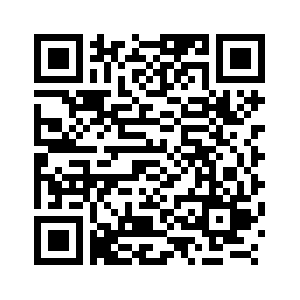BEIJING, Sept. 16 (Xinhua) -- At a bustling exhibition booth, a humanoid robot caught the attention of Tran Quynh Mai, a Vietnamese student pursuing a bachelor's degree in traditional Chinese medicine (TCM) in China.
The robot, displayed at the ongoing China International Fair for Trade in Services in Beijing, used three mechanical "fingers" to sense and collect pulse signals from a person's wrist, effectively simulating the TCM examination technique known as pulse diagnosis.
Simultaneously, the pulse activity was displayed on a screen, functioning similarly to electrocardiography.
Amazed by the integration of technology with TCM -- a practice that has been around for millennia -- 20-year-old Tran and her fellow international classmates from Beijing University of Chinese Medicine eagerly joined other visitors to interact with the robot.
The robot, paired with a box-shaped facial diagnosis device featuring a camera, represents the latest advancement from the Experimental Research Center of the China Academy of Chinese Medical Sciences (CACMS). This initiative aims to enhance TCM practices through artificial intelligence (AI) and other cutting-edge technologies.
These devices are designed to perform the four fundamental diagnostic methods of TCM: inspection, auscultation and olfaction, inquiry, and palpation.
According to Liu Jia, an associate researcher at CACMS, the equipment compares collected data -- such as pulse, complexion, and tongue coating -- with that of healthy individuals of the same age and gender.
This comparison allows for the formulation of reports detailing specific physical conditions and treatment plans within the TCM framework. The entire diagnostic process takes about 10 minutes, with reports conveniently available on patients' mobile phones.
Liu commented that there are voices challenging TCM, particularly regarding its reliance on the subjective feelings and experiences of physicians.
"With AI-powered instruments, diagnosis and treatment become more standardized," she said, adding that CACMS is collaborating with enterprises to mass-produce these devices.
Tran described the technology as akin to having a "seasoned TCM practitioner" available. "For those learning TCM outside China, such equipment will be invaluable," said Tran, who left her TCM studies in Vietnam to seek more professional training in China.
Narmada Dissanayalce from Sri Lanka, who is in Beijing for a seminar on public health management, echoed Tran's sentiments. With a doctorate in Ayurveda, a traditional Indian medicine system, Dissanayalce has developed a keen interest in TCM and has studied acupuncture in Sri Lanka.
She noted that while TCM is popular in her country, pulse and facial diagnoses are less common compared to acupuncture and meridian massage therapy. "There are few experienced TCM practitioners in Sri Lanka skilled in pulse and facial diagnoses, and I believe these high-tech products can assist in this area, helping to expand TCM's reach," she said.
In addition to AI devices for pulse and facial diagnosis, TCM research teams and companies also displayed robots dedicated to acupuncture and meridian massage at this year's trade fair, impressing both domestic and international visitors.
Lin Zhijian, a professor at the Beijing University of Chinese Medicine, expressed confidence that modern technology will bolster the development of TCM as an industry and enhance its international exchange through improved services.
"As an ancient practice and culture, TCM has always embraced inclusiveness and innovation; otherwise, it would not have survived to the present day, let alone gained appeal in foreign lands," Lin stated.
A key document adopted by the Communist Party of China in July emphasized the importance of enhancing mechanisms for preserving and innovating TCM. Yu Yanhong, head of the National Administration of TCM, pledged to refine the promotion of scientific and technological innovation in the field.
Dajing TCM, a medical information technology company based in Nanjing, Jiangsu Province, showcased its AI pulse diagnosis devices at the exhibition.
Sales director Zhang Yu highlighted that their products stand out in terms of portability and cost-effectiveness. Weighing about 1 kilogram, each device is priced around 30,000 yuan (approximately 4,200 U.S. dollars).
Zhang noted that their primary customers include health and wellness centers, community clinics, and households. "We are collaborating with our foreign counterparts to explore overseas markets. The potential for TCM technology products will expand as TCM gains popularity in other regions," Zhang said. ■



